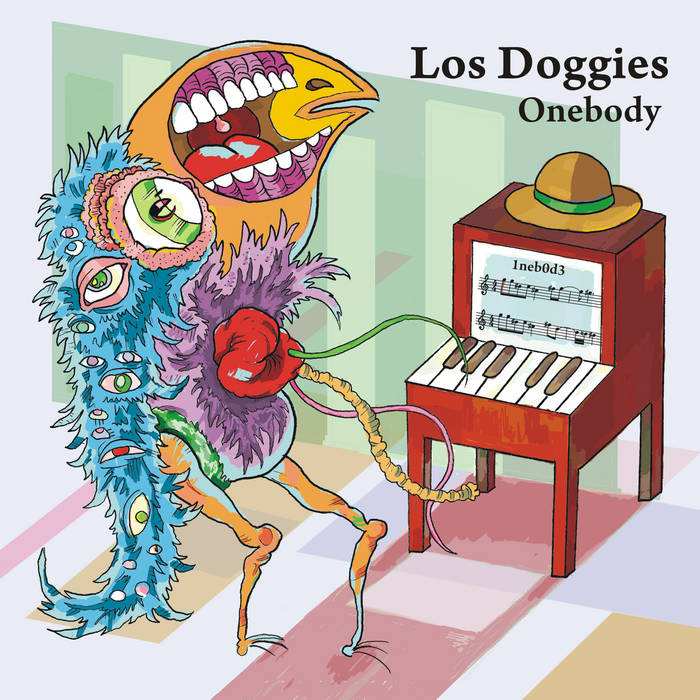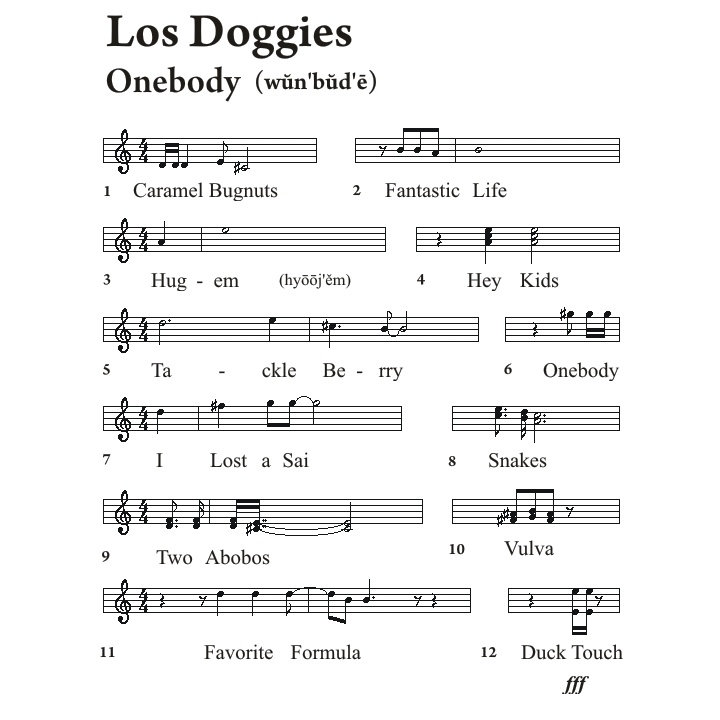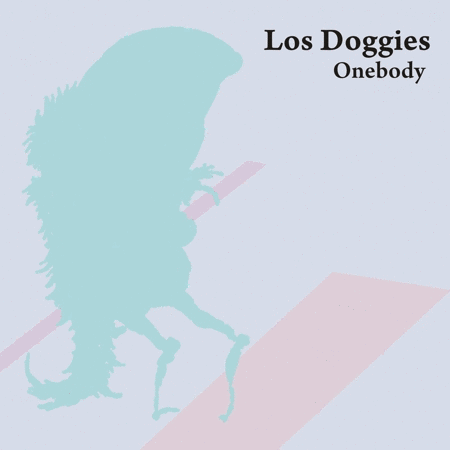In honor of its 10-Year Anniversary, Onebody is now available on digital radio.
Onebody was recorded nightly from 2005–2007, while we were working at a train-yard for a paper company. Saugerties-stylies. Grimy brow. Finger-cuts. Living up that Aughties bubble. Eating out at Friendly’s every night. You know, real blue-collar shit, except we wore white crew-neck Hanes tees to show off the grime.
It was a simpler time when the only social media was MySpace, but there was no reason to carry around a MySpace in your pocket. Nostalgia hadn’t been automated yet, it had to be manufactured by human hands. The crude touch of the human animal could still be felt on everything, like a waxy film.
Phones hung on the walls in those days as in a Surrealist painting. They needed to be “answered.” The ringtones were always in major keys; this could not be changed. In the voicemail there lay the fertilest creative potential.
The previous decade had its hits with “We will, we will, call you back” and “Believe it or not, I’m not home.” Los Doggies arrived on the answering machine scene late with a sixty-second ode to a mythic cereal, the AC/DC-inspired—“Caramel Bug Nuts” and the rest is mostly-forgotten history, lost to the minicasettes of a bygone era.

A Spanglish slip-of-the-tongue had already originated our band name (despite the popular fan theory that “Los”=Lucifer in the Blakean sense, and “Doggies”=’Gods’ in the reverse Satanic sense). Another tongue-slip titled our first multitrack album with an ironically Christian-sounding title-track—a neologism denoting a specific somebody, a “onebody” as it were, with a pocket dose of buddy love.
As the twenty-year rule has it, the Aughts reflected the Eighties, or at least that’s the way of it on this album of twelve gracious melodies infused with B-movies, Nintendo games, and other pop culture detrita, alongside the pansexual vulgarity, the CIA-grade psychedelia, and the weaponized nature of music itself. But according to Joey Cambell—every movie is actually a spiritual quest, especially when it’s not. And Magritte didn’t paint pipes—C’est un pénis!
“Onebody” was an early experiment in home-recording. A series of heavy novelty sing-songs mostly written in fireside campgrounds on a cross-country tour of America and for this it has a distinctly American sound.
The lyrics fit on a single CD-booklet page, while the music is probably of the “too many notes” variety. But the melodies are there, though they might sound like young-throated singers, it’s only the pitch-bend effect, since we were shy about our voices. We also didn’t know how to play our instruments, but that didn’t stop us then, and it doesn’t stop us now.

The aforementioned “Caramel Bug Nuts” became a live favorite. The lyrics are from AC/DC’s “For Those About To Rock” but the vocals and two-part song structure have a strong Meatloaf influence.
“Fantastic Life” has a Latin flavor with the same two(or three)-part structure sung by the victim of a manic wood sprite. Listen for the “Fuck!” at 4:33, where I made a guitar solo mistake for the thousandth take.
“Hugem” is basically the movie Midnight Madness set to a chill ‘70s groove, including the anagram-style tongue twister of the title, pronounced “Huge’m.”
“Hey Kids” is the unofficial theme song of Los. Like other songs on this album, it has something of a two-part structure with two competing tonalities and themes—the choruses in happy Major Sevenths, and the wicked Half-Whole guitar solos.
“Tackleberry” is a prog-punk requiem for the Police Academy actor, David Graf. This was a popular live song throughout our different incarnations—as a desktop-PC duo, a high-octane power quartet, and the current indie trio. I’ve been thinking about revisiting it in the future as there’s something intriguing about a “tackleberry,” perhaps the inherent musicality of the word.
The titular “Onebody” features the rare girl-voice on the album. One common criticism is that there weren’t enough girl-voices on the album, something that we remedied on the follow-up, e’rebody, which features a chorus of boy-girl voices. From the lyrics, you’d think “Onebody” has to be about the Savior, the Messiah, and maybe it is. Another two-parter, this time with a Picardy twist from C# minor to C# major. Probably the only song bereft of pop culture reference, it became a referent unto itself.
“I Lost A Sai” is nothing more than the ballad of a Teenage Mutant Ninja Turtle and his missing weapon. It does have an Oriental flavor, in keeping with the whole Ninja turtle thing. The bridge is something straight out of Pink Floyd, but the main song is a ripoff of spacerock band, Hum.
The samba “Snakes” concerns a dramatic beat from The Little Prince. In the claymation version, the Prince is discovered to be colluding, Eve-like, with a luminous serpent in the desert. So the pilot asks him rhetorically, “What can it mean? Why are you talking to snakes?”
The two-part structure is again on display in “Two Abobos”, a nod to the Double-Dragon dichotomy of the singer’s dilemma—unrequited love of a video-game villain, the Abobo, further complicated by it being a love triangle for twin Abobos. Listen for the special dream-riff on toy glockenspiel (1:46) and again on electric guitar (6:03).
Nothing really needs to be said about “Vulva”. The Lise Loeb-esque raps were tacked onto the blesséd section in another two-part mashup. The vocals were so strong we didn’t even raise the pitch.
“Favorite Formula” is probably the most requested live song and that’s because the kids love formulae. Like “Fantastic Life” there is an unlikely encounter in the woods, here with Math mystic Pythagoras. Listen for the numeric palindrome: 111111111 x 111111111 = 123456789987654321
Finally, there’s “Duck Touch”, the epic rock song that never was. Taking a blues melody too far into emo territory. The actual sing-song sections are short and give way to a Phish-like instrumental bridge. The choruses self-reference the “Hey Kids” hook, and the whole thing is wrapped up in a final Steve Vai guitar harmony, which felt like the proper way to end an album at the time.
Originally, a bubble-sticker name for the aforementioned paper company, the touch of the duck lives on, more of an idea than a song.

Find Onebody on:



